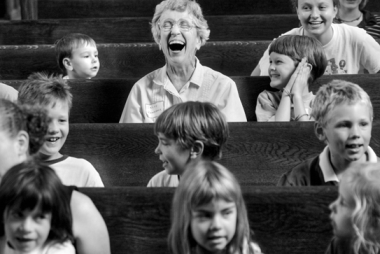
Vacation Bible School (VBS) is a vital part of children's ministries for thousands of Christian churches throughout North Carolina. While VBS has its roots in Southern Baptist churches, the ministry has spread to nearly all Protestant denominations as well as to the Roman Catholic Church. Local congregations use VBS as a means of continuing children's ministry when school is not in session. It serves students primarily in the elementary grades, although some churches offer programs for youth and adults as well. Additionally, many churches view VBS as an essential part of their outreach ministry for the "unchurched," attracting families who do not attend church regularly but wish to provide their children with this experience.
VBS was originally called "Every Day Bible School" when it began in 1901. In its earliest incarnations, programs and curricula were limited. Teaching activities were confined to Bible study and storytelling, and programs tended to be regimented and routine. VBS programs began to improve when Christian educators began to recognize the importance of teaching the Bible with a heavy emphasis on child participation. The "glue, scissors, juice, and cookies" activities of yesteryear can no longer compete with video games, virtual reality, and computers. Therefore, churches have become more creative with their programs, using tools such as multimedia, dramatic presentations, and live music.
The earliest VBS programs ran as long as six weeks, but over the course of the twentieth century, churches generally shortened the length of the program to two weeks. In deference to families taking vacations during the summer, most modern-day congregations in North Carolina limit their VBS programs to one week. Moreover, with some school systems in North Carolina implementing year-round schooling and with both parents in many families working full time, many churches now offer their VBS programs in the evening. In some larger congregations, churches may offer both morning and evening programs to accommodate the needs of participants.